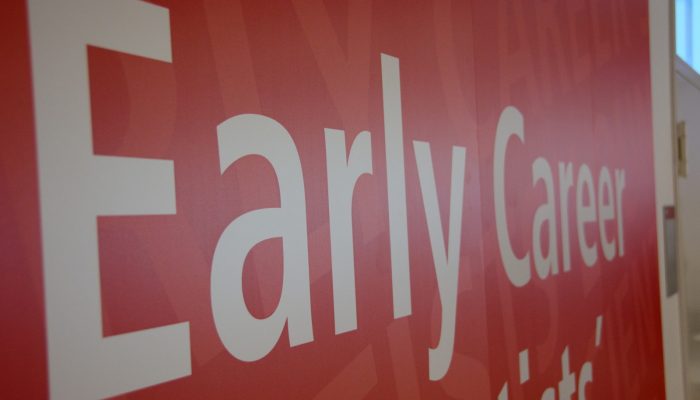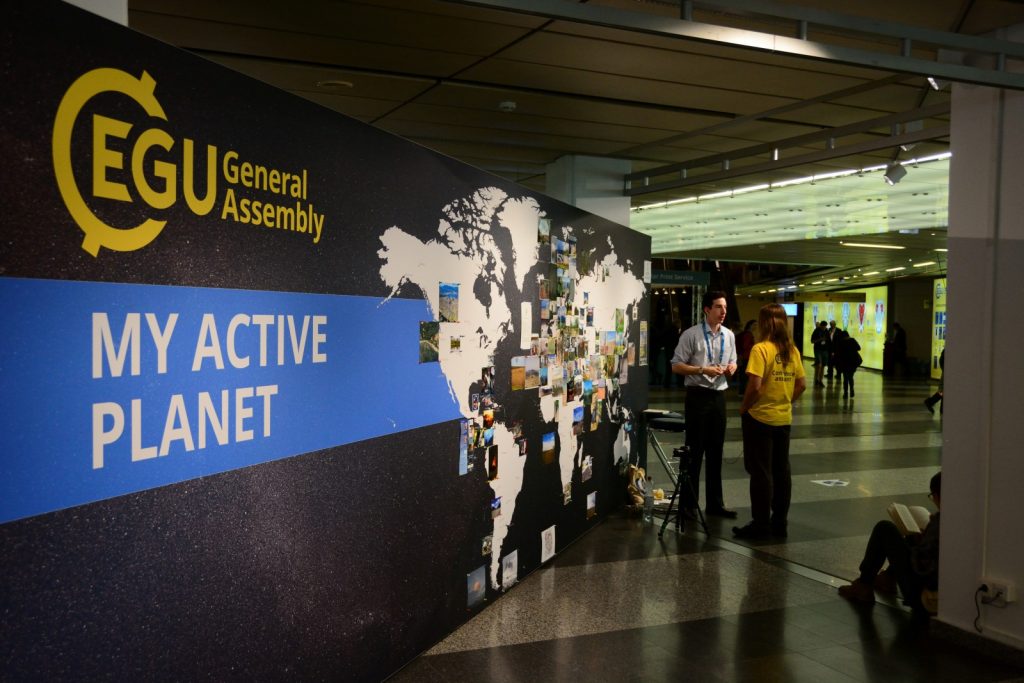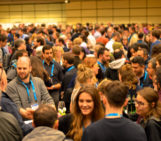
In this guest post Roelof Rietbroek, EGU’s Union-wide Early Career Scientist Representative (2017-2018), speaks about the importance of reseachers getting involved with the Union’s early career activities to really reap the benefits of being part of the network.
With over half of the participants of EGU’s general assembly qualifying as an Early Career Scientist (ECS), chances are you are one too. But frankly, simply classifying as an ECS doesn’t provide much advantage. If you really want to reap the benefits of being part of this community you should act and engage. Contribute and help shape the scientific program, show your face and get known in your community while establishing personal connections beyond your ECS peers. Allow yourself to step out of your ECS niche and become part of the scientific community as a whole. The ultimate goal of EGU’s ECS framework and its representatives should be to facilitate this transition rather than merely forming a group of scientists at the beginning of their career, but it’s only going to happen if you step up.
So, when do you stop being an Early Career Scientist?
According to the official definition of the EGU it is clear that you stop being an Early Career Scientist (ECS) after 7* years since your last degree, but the truth is, this is a much more gradual process. Over the course of years, you aim to gain experience, establish a network, and become recognised in your field.
Although that feeling of being an ECS should slowly wear out over the years, it nevertheless makes sense to try to identify early career scientists within the EGU and support them in pursuing their careers in science or industry, establishing their networks, and sharing their scientific work. There is indeed a difference between someone at the beginning of their career and someone who has been working in the field for a while: experience. It should be stressed that although age often correlates with experience, it should not be considered as the criteria to determine whether someone qualifies as an ECS. For this reason, my predecessors worked hard to drive change within EGU by pushing for the renaming of young scientist to early career scientist, and updated the definition of an ECS to reflect experience rather than age.
Contribute to the General Assembly
In last year’s survey, well over half (58%) of the respondents indicated that they qualify as an early career scientists (ECS). It can therefore be expected that they also play a similar role in contributing to the programme of the General Assembly. So do ECS actually have their fair share of oral, poster and PICO presentations?
Compared to poster and PICO presentations, the amount oral presentation by ECS authors often fall below their participation rate. Possibly, ECS’s are signing up for fewer oral abstracts, but it’s also justified to ask whether unconscious biases are at play in the convener teams when finalising the programme? If you think of it, EGU’s presentation formats are not tuned to presenters with certain levels of experience, and all types are considered to be equally important. So there is no reason why the presenters of a specific type of presentation shouldn’t reflect the diversity of EGU’s participants. But let’s be honest, as conveners, maybe we do sometimes hear that little voice who tells us that the way of the least resistance is to grant that oral request to that well-respected colleague at the cost of an oral request of a lesser known PhD student.
But apart from raising awareness among session conveners, I think it’s equally important to tell ECS to be bold and engage with the session conveners. If you prefer an oral presentation, why not send the conveners an additional email on that paper which is about to be published and underline your willingness to give a talk?

There are plenty of ways early career scientists can contribute to the EGU’s annual General Assembly. Credit: Roelof Rietbroek.
Shape the programme
Understandably, first time attendees are unlikely to submit and convene sessions during the general assembly. But after a few years, you are actually in a good position to spot influential and emerging fields, which are the ideal session topics. The good thing about the bottom-up approach of the EGU is that every member can propose sessions and short courses for the General Assembly. And I would stress that the programme of the General Assembly crucially depends on input from the community.
Many short courses are already proposed and organised by ECS, and they’ve become increasingly popular over the years. But what about session convening? Unfortunately, many ECS I spoke to were not aware of the possibility of proposing sessions, or felt it is not up to them to do so. Again, I would hope that ECS members step up and start to actively help in shaping the programme as they progress in their careers.
Ideally, convener teams should reflect the diversity of the EGU community. This means that a set of aging white male conveners is frowned upon, but a bunch of ECS from the same institute may also not be the best choice for a convener team.
Connect to researchers outside the ECS community
It might be tempting to surround yourself with ECS peers, with who you identify most strongly and with who you can share your common struggles. Growing a healthy ECS community certainly has it’s benefits and should be encouraged. But from a career and research perspective it definitely pays off to connect with more experienced scientists as well.
In many cases this will lead to win-win situations. Scientists who have proposals funded may be on the lookout for qualified PhD’s and Postdocs, or some researchers may be able to put that method you’ve developed to good use with their data resulting in a joint publication. And quite often, you’ll find they know a lot of other people in your field, which they are happy to introduce to you.
During the GA, there are several events and programmes which encourage such exchanges. The “Early Career Scientists’ Networking & Careers Reception’ brings together early career researchers and award winning researchers. Furthermore, in 2018, the EGU is again organising a mentoring scheme. Within that programme, ECS’s are matched with established scientists, and during the GA the mentee and mentor will meet up regularly.
Growing pains
All in all, I see the role of the EGU’s Early Career Scientist Representatives not to simply give a voice to you as an early career scientist , but rather to encourage you to move on. This involves listening to you and identifying the growing pains of becoming a respected scientist or industry professional. But also to promote your active engagement as early as possible, which is ultimately what the EGU thrives on.
By Roelof Rietbroek, EGU’s Union-wide Early Career Scientist Representative (2017-2018)
Editor’s note: This is a guest blog post that expresses the opinion of its author, whose views may differ from those of the European Geosciences Union. We hope the post can serve to generate discussion and a civilised debate amongst our readers.




Bethel Ukazu
i enjoyed reading this piece.
thank you Roelof Rietbroek